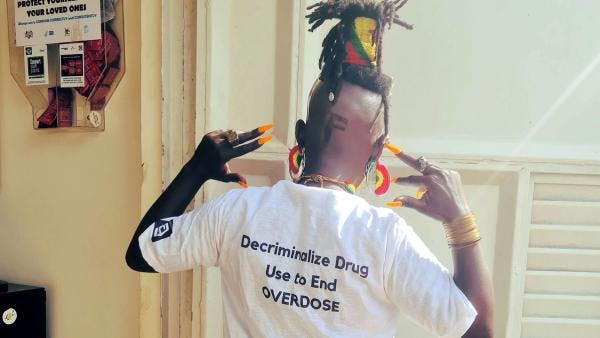URHN
Uganda's new Narcotics Law will undermine access to healthcare for people who use drugs
In yet another dramatic development for minoritised communities in Uganda —still reeling from the shock of the passing of the Anti-Homosexuality Act, on 2nd February 2024 the President signed the Narcotic Drugs and Psychotropic Substances (Control) bill into law, another draconian piece of legislation that threatens the health and wellbeing of Ugandans.
The Anti-Homosexuality Act imposes life imprisonment and even death for those convicted of homosexuality and ‘aggravated homosexuality’, whereas the Narcotics Law penalises the possession of illegal drugs with over 15 years in prison (and life imprisonment for people involved in supply). These laws target marginalised groups who are already made disproportionately vulnerable to the harms associated with drug use, HIV, and other illnesses. Instead of promoting much-needed access to support and care, the new law pushes these communities away from health and social services that are essential to manage drug dependence, prevent HIV transmission and AIDS, and support people to be well and live productive lives. Also concerningly, these laws are emboldening parts of Ugandan society to justify violence and exclusion. As such, both laws amount to an assault on public health and, if implemented, will result in dramatic increases in imprisonment, with detrimental knock-on effects not only on those criminalised but all Ugandans.
The law’s proposed stiff penalties on people who use drugs will also drive them further underground, making access to health and justice an even greater obstacle course. Recent data by the Uganda Police indicate that every year there are approximately 3,000 cases related to narcotics recorded. It is widely known that contact with the criminal justice system greatly depends on police discretion. People who use drugs tend to be arrested based on their appearance and the assumption that they are perpetrators of harm and deleterious social habits. As such, greater punishment spells intensified stigma and arbitrariness in the application of the law.
The Uganda Harm Reduction Network’s preliminary analysis of the new law identifies a range of challenges, including the criminalisation of the possession of plants and substances (including cannabis and khat), as well as the possession of drug use utensils, which are essential for harm reduction. Hefty fines and/or long imprisonment for victimless behaviours could become the norm.
The Act perpetuates and intensifies the criminalisation of people who use drugs, prioritising criminal justice responses over care and assistance. In this way, the new law threatens the provision and access to harm reduction services and fuels health risks among people who use drugs in all their diversity. Furthermore, the threat of punishment has spread fear and will further drive community members underground, impeding important civic organising and democratic accountability.
It is based on this background that the Uganda Harm Reduction Network, the national network of people who use drugs in Uganda calls for international partners that give support to Uganda, including the European Union, UN agencies (e.g. UNODC, UNAIDS, WHO, UNDP), the Global Fund, PEPFAR/CDC, civil society organisations (e.g. Amnesty International, Human Rights Watch), and all bilateral and multi-lateral development partners to publicly condemn these draconian pieces of legislation that impose long term imprisonment to already marginalised communities of people who use drugs.Communities experiencing state violence and neglect need access to health care services, not incarceration.
We also urge our government to support embrace and fulfil the principle of ‘do no harm’, committing to withdraw these pieces of legislation and initiate a process of consultation and redrafting that involves affected communities and service providers.
For more information visit the links below:
